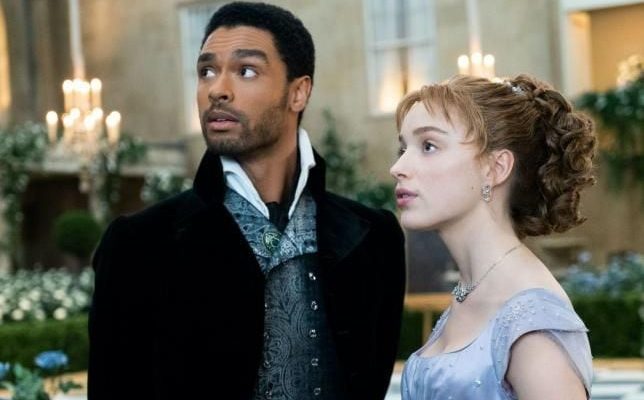The time machine exists, and it works with a remote control. Just taking a look at streaming platforms is enough to be struck by a disturbing observation: more than ever, television seems obsessed with the past. This November 16, Netflix dives into the 1990s with the first episodes of the final season of The Crown. Two weeks earlier, the platform had opted for a reconstruction of the Second World War on the occasion of the release ofAll the Light We Cannot See, syrupy adaptation of the 2015 Pulitzer Prize.
The streaming giant isn’t the only one with an addiction to nostalgia: in mid-October, Apple TV opted for the 1960s with its series Lessons in Chemistry. Less than a month later, the platform was released The Buccaneers, very free pop version of an Edith Wharton novel set in 1870, while season 2 of The Gilded Age, taking place during the same period, has been broadcast since October 30 on OCS. The trend is for crinolines, corsets, and retro accessories. The plethoric serial production of recent years is resolutely turned backwards.
This creative reflex is certainly not new. “Adaptations of English literature in costume have existed for a long time, by the dozens. They have become a genre in themselves, almost banal and revised,” observes Ioanis Deroide, associate professor of history and teacher, author of England in the series. Lately, Dickens and Austen have nevertheless given way to series from the four corners of the world: Alchemy of Souls delights fans of Korean dramas on Netflix, like the Turkish Midnight at Pera Palace. “The lighting and the soundtrack, which could easily make series foreign to the Anglo-Saxon world seem dated, have been replaced by international standards,” continues Ioanis Deroide. “The rise of digital technology and the financial means of the platforms have made it possible to ‘standardize international codes.’
Having become accessible, historical series also have the advantage of being familiar. “They tell a story that is already known and are comfortable for the viewer,” analyzes Gary Edgerton, specialist in American television and professor at Butler University, in Indiana. “Nostalgia is a very effective strategy, deployed profusely in entertainment for almost half a century. At a time when – due to platform traffic jams – a project approved by a studio may not be released until several years later, recounting the past becomes less risky than contemporary times. “Americans today are disenchanted with the state of the world and their country. They feel even more the desire to immerse themselves in a dream past, where, according to them, everything was better,” continues Gary Edgerton . After watching the contemporary series Yellowstone, featuring a Kevin Costner dressed as a modern-day cowboy, spectators across the Atlantic immersed themselves in his historical spin-offs 1883 and 1923. “These stories play on a very traditional American mythology, a little reactionary, continues the specialist. They are very regressive.”
Conversely, they can also be an opportunity to make the story more beautiful than it was. In historical romance The Bridgerton Chronicles, Netflix imagines an England in the Regency era where skin color is no barrier to being born an aristocrat. The past becomes an ideal to escape from. What will be your next historical blanket?
